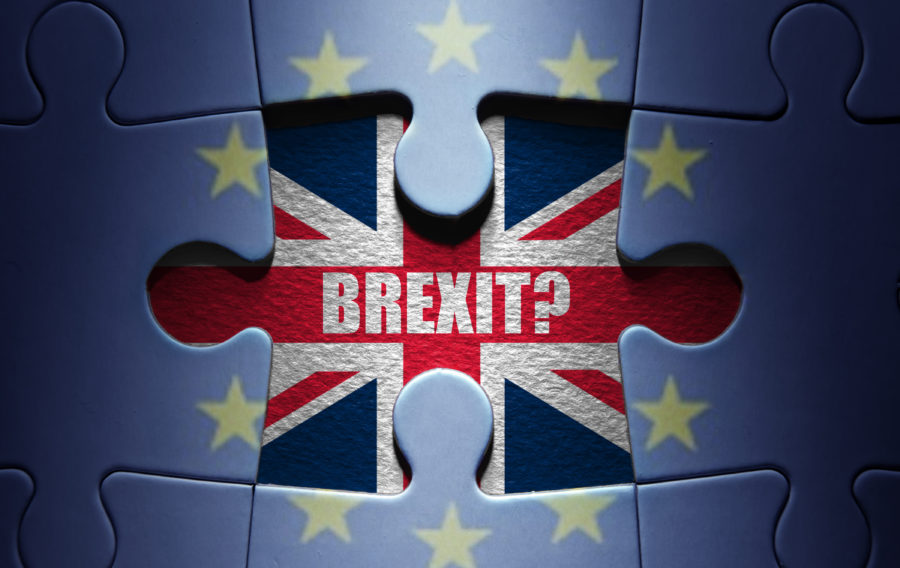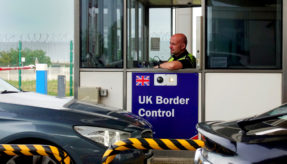
The government has issued guidance to the defence sector as the UK prepares for its exit from the European Union.
Britain is set to leave the EU on 31st October 2019 and there may be changes that affect businesses involved in the defence sector should the UK exit without a deal.
There is advice for those involved in importing and exporting should take a number of measures to prepare for disruption to trade at the UK-EU border including:
- Get a UK EORI number(this starts with GB) so you can continue to import or export goods and apply for authorisations that will make customs processes easier for you.
- Decide if you want to hire an import-export agent, or make the declarations yourself.
- Contact the organisation that moves your goods (for example, a haulage firm) to find out what information they need to make the declarations for your goods, or if you will need to make them yourself.
Read the guidance on simplified customs procedures for trading with the EU if we leave without a deal.
Further information is provided in HMRC’s advice for businesses trading with the EU.
Preparing for changes to existing trade agreements
Check the way you currently trade with non-EU countries. When the UK leaves the EU the way you access existing favourable arrangements with these countries may change. Changes may be different for each country.
Read the guidance on changes to trading with non-EU countries that have a free trade agreement with the EU.
Your employees
Employing EU, EEA and Swiss citizens
Right to work checks
You should continue to carry out the same right to work checks on all EU/EEA and Swiss citizens, by using their passport or national identity card, until January 2021.
You will not need to distinguish between EU/EEA and Swiss citizens who were resident in the UK before or after the UK leaves the EU.
Find out how to check an applicant’s right to work and read the guidance on employing EU, EEA and Swiss citizens after Brexit.
EU/EEA and Swiss citizens living in the UK before the UK leaves the EU
EU/EEA and Swiss citizens who are resident in the UK before the UK leaves the EU will be able to apply to the EU Settlement Scheme to get settled or pre-settled status. This will mean they can continue to live, work and study in the UK, if the UK leaves the EU without a deal..
EU/EEA and Swiss citizens must apply by 31 December 2020 if the UK leaves the EU without a deal.
You can use the EU Settlement Scheme guidance for employers to give further information to your employees.
EU/EEA and Swiss citizens who arrive in the UK after the UK leaves the EU
EU, EEA and Swiss citizens arriving in the UK from Exit Day to 31 December 2020 can continue to come to the UK, to live, work and study without applying for a visa in advance, if the UK leaves the EU without a deal..
After free movement ends, if they want to stay for longer than 3 months, they can read the guidance on staying in the UK to find out what they’ll need to do.
Irish citizens can continue to live, work and study in the UK, just as before.
From 1 January 2021, a new skills-based immigration system will launch.
For non-EU nationals, Brexit will not affect the application process for work visas.
Travelling to the EU
British passport holders travelling to the EU will need to have 6 months remaining validity on their passport, not including any extra months added to a 10 year passport if it was renewed early, if the UK leaves the EU without a deal.
Read the rules for travel to Europe after Brexit and check your passport to see if you need to renew earlier than planned.
Check the county guides to see if there are different business travel and visa requirements for the country you are planning to visit.
Regulation and standards
Recognising CAA and EASA licences
Certificates which were issued by the CAA, or for a UK based organisation by EASA, before the UK leaves the EU would no longer be automatically accepted after Brexit.
Read about how businesses can apply for valid safety certification for the EASA system before the UK leaves the EU through third country approval or transferring your licence to another EASA state.
The European Commission Regulation 2019/494 states that if the UK leaves the EU without a deal:
- type certificates (and a number of related certificates) and design organisation approvals issued by EASA to UK organisations before the UK leaves the EU will remain valid for 9 months
- Authorised Release Certificates, Certificates of Release to Service and Airworthiness Review Certificates issued before the UK leaves the EU by organisations approved by the CAA will be valid with no time limit
Businesses with UK-issued certificates for aircraft registered in the EU should check the European Commission’s notice and with the relevant EU authorities.
The Military Aviation Authority (MAA) has also issued guidance on the implications of leaving the European Union without a deal on compliance with the MAA’s Regulatory Publications MAA Regulatory Notice MAA/RN/2019/11.
Further guidance is available on preparing to work and operate in the European aviation sector after Brexit.
Importing or using chemicals
If you use or import chemicals then you will need to check whether you have new obligations under UK REACH (the Registration, Evaluation, Authorisation and Restriction of Chemicals Regulation).
For example, if you currently purchase a chemical substance directly from an EU/EEA supplier, you must make sure any substances you purchase are covered by a valid UK REACH registration by someone within your supply chain. Otherwise, in order to remain compliant you will need to register as an ‘importer’. To do so, you must:
- open an account on REACH IT once it is established and provide initial information on your registration within 180 days of the UK leaving the EU
- provide full technical information on your registration within 2 years of the UK leaving the EU.
Read the guidance on regulating chemicals if the UK leaves the EU without a deal and the chemical regulation guidance from HSE.
Ensure you can continue to manufacture and export chemical products
There may also be new actions you need to take if you manufacture or export chemicals. Further information is provided on the HSE website.
Recognising harmonised goods
After the UK leaves the EU the results of conformity assessment carried out by UK conformity assessment bodies will no longer be recognised in the EU.
This means you must get your products assessed and marked by an EU recognised conformity assessment body if you want to sell them in the EU. You can also arrange for assessments to be transferred to an EU-recognised body before the UK leaves the EU.
You will still be able to use CE marking based on self-declaration of conformity, whether you are selling in the UK or exporting to the EU.
The UK government has also introduced a new UKCA mark, which some businesses will need to use when they place products on the UK market after the UK leaves the EU.
Read the guidance on placing manufactured goods on the EU internal market if there’s no deal and placing manufactured goods on the UK internal market if there’s no deal.
Further information is available in the guidance on UK product safety and metrology if there’s no deal.
Providing services to EEA and EFTA countries
The UK will no longer operate under the European Economic Area (EEA) regulations for the cross-border trade in services, if the UK leaves the EU without a deal.
This means that the rights and protections provided by the EU Directives and EU Treaty rights of Freedom of Movement and Freedom of Establishment will no longer apply to the UK.
UK businesses will no longer be treated as if they were local businesses, and UK businesses and professionals providing services in the EEA will be regarded as originating from a ‘third country’.
UK firms and service providers may face additional legal, regulatory and administrative barriers as a result.
Read the guidance on providing services to EEA and EFTA countries after Brexit.
Personal data
Data protection
Your business will need to make sure it follows data protection law if the UK leaves the EU without a deal.
If you operate across the EU or exchange personal data with organisations in the EEA, there may be changes that you need to make before the UK leaves the EU.
Read the 6 step process and the data protection guidance from the Information Commissioner’s Office (ICO).
You can also check if you can use standard contractual clauses (SCCs) for transfers from the EEA to the UK.
Operating in the EU
Cross-border business operations
If your business operates in the EU you may want to seek professional advice or contact the government of the country in which you operate for more information.
UK companies and limited liability partnerships based in an EU member state may need to restructure to satisfy the requirements for incorporation in that EU member state.
Any UK companies that are carrying out a cross-border merger will need to make sure that they can complete the merger before the UK leaves the EU. You may want to seek legal advice on your specific case.
UK investors in EU businesses need to be aware of any restrictions within the EU country where they are operating.
Read the guidance about structuring your business if the UK leaves the EU without a deal and check the requirements of specific EU countries.
Information taken from The defence sector and preparing for Brexit
For more information on the impact of Brexit on procurement, why not visit BIP Solutions’ Brexit portal here.
If you would like to join our community and read more articles like this then please click here.







